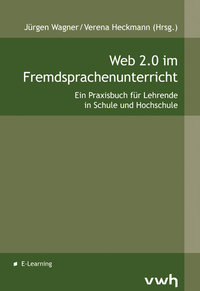 Fortbildung Online
Fortbildung Online are currently offering a series of free webinars about ICT in the foreign language classsroom.
The one hour webinars are conducted mainly through German, although there are also some French and English sessions scheduled. The series will runs through April, May and June.
Coming up this Thursday (18/2013 - 19:00h - 20:30h CET), Shona Whyte (Université de Nice) will be speaking on "Interactive technologies for classroom language teaching: iTILT and the IWB". Shona will be covering:
- the lack of training & materials to use Interactive whiteboards (IWBs) effectively for language teaching
- presentation of resources from a recent European project on IWBs in language teaching [http://itilt.eu]
- discussion of materials, activities, and examples of language teaching with the IWB
- discussion of alternative technological solutions for those without access to an IWB
To register simply send an email to JWagner@lpm.uni-sb.de
To participate: Click on the access link: https://webconf.vc.dfn.de/shona/
The rest of the schedule is as follows:
22. 04. 2013 - 19:00h - 20:30h
Elke Lackner
Durch die Cloud zum kreativen Endprodukt
Zugangslink: https://webconf.vc.dfn.de/wordclouds/
29. 04. 2013 - 19:00h - 20:00h
Pilar Munuera
Les Perles du TICE - remue-méninges sur le FLE [Scoop.it]
Zugangslink: https://webconf.vc.dfn.de/pilar/
06. 05. 2013 - 19:00h - 20:30h
Marie-Hélène Fasquel
Projet e-Twinning et création de livres électroniques
Zugangslink: https://webconf.vc.dfn.de/fasquel/
10. 06. 2013: 19:00h - 20:30h
Jean-Michel Ducrot
"Insuf-FLE" - Le blog phare du FLE
Zugangslink: https://webconf.vc.dfn.de/insuffle/
06. 06. 2013 - 19:00h - 20:30h
Uwe Klemm
Einsatzmöglichkeiten von Moodle im Fremdsprachenunterricht
Zugangslink: https://webconf.vc.dfn.de/moodleimfsu/
17. 06. 2013 - 19:00h - 20:30h
Stephan Rinke
Online Textarbeit mit dem Etherpad/Edupad
Zugangslink: https://webconf.vc.dfn.de/etherpad/
10. 10. 2013 - 19:00h - 20:30h
Stephan Rinke
Moodle muß Spaß machen
Zugangslink: https://webconf.vc.dfn.de/moodlespass/
14. 11. 2013 - 19:00h - 20:30h
Andrew Pickles
Task-based learning
Zugangslink: https://webconf.vc.dfn.de/taskbased/
21. 11. 2013 - 19:00h - 20:30h
Manfred Overmann
Le site portail du professeur de FLE
Zugangslink: https://webconf.vc.dfn.de/overmann/
02. 10. 2013 - 19:00h - 20:30h
Mélanie Auriel
Des applis iPad pour une pédagogie "classe inversée"
Zugangslink: https://webconf.vc.dfn.de/applis/
16. 01. 2014 - 19:00h - 20:30h
Heike Kolacki
"Kooperative Lernformen" im Französischunterricht
Zusammenarbeit mit Cornelsen
Zugangslink: https://webconf.vc.dfn.de/kolacki/




